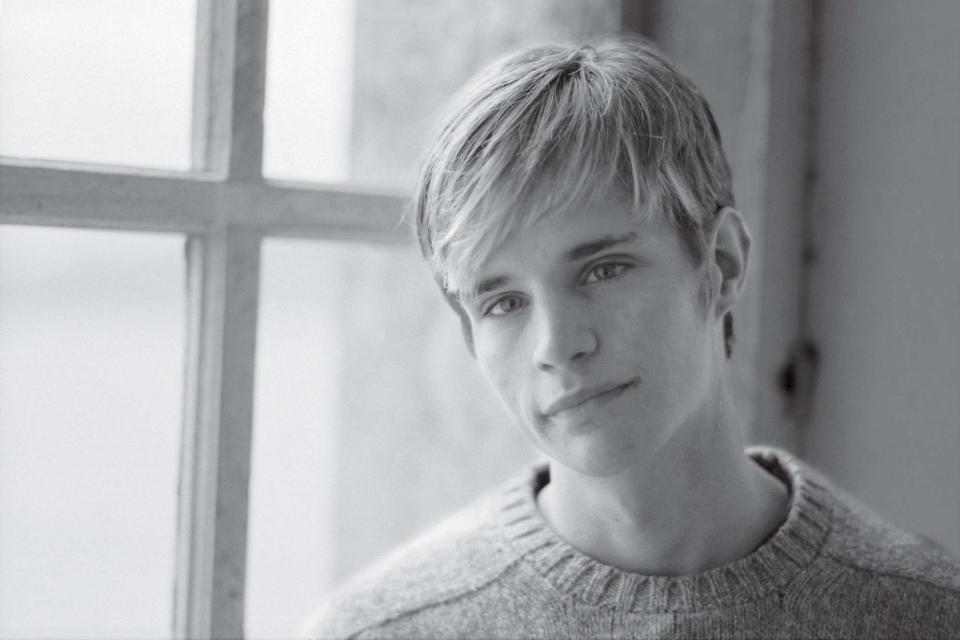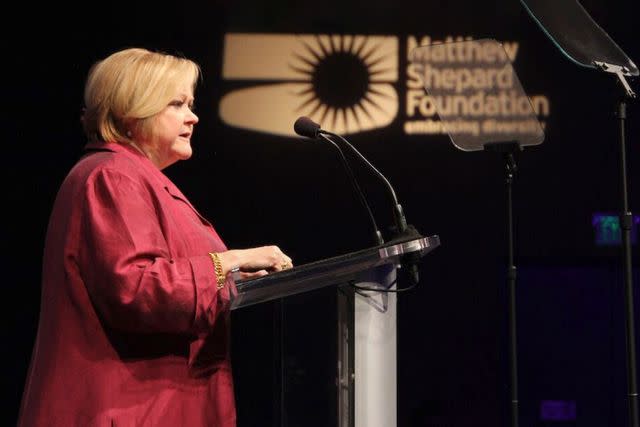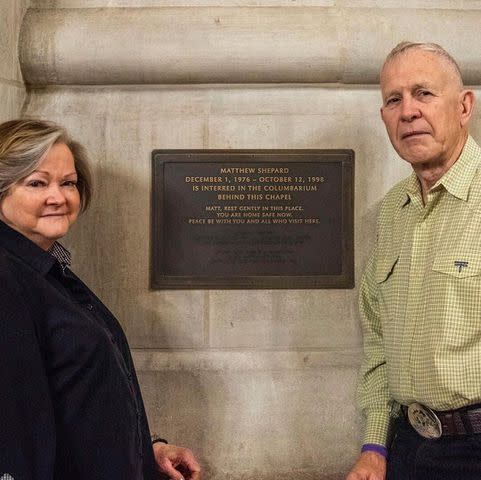25 Years After Son's Murder, Matthew Shepard's Mother Says 'We're Moving Backwards' on Anti-Gay Bigotry
Matthew Shepard's family is commemorating his brutal death 25 years ago, which sparked a national movement of inclusion his parents are still fighting for

Gina von Hoof
Matthew ShepardJudy and Dennis Shepard were sound asleep when they got the call. It was 5 a.m. in Saudi Arabia, where the Shepards were living while Dennis worked as an oil company safety engineer. Groggy with sleep, Dennis and Judy learned their son Matthew Shepard, 21, a college sophomore, was in the hospital half a world away in Laramie, Wyo., suffering from life-threatening injuries including to his spine.
On the night of Oct. 7, 1998, he was robbed, severely beaten and tied to a fence on a desolate prairie outside Laramie by two men he met at a local bar — because he was gay. His death five days later devastated his family. But it also galvanized a movement of inclusion that over the years resulted in stronger laws, same-sex benefits, more tolerance — and a huge community who sided with them.
“We lost Matt, but we were welcomed into a whole new family,” Judy, 71, tells PEOPLE about the people they’ve helped. “We didn't know we had all those gay kids out there. They've been pretty amazing to us.”

Kevin Moloney/Getty
The location where Matthew Shepard's body was foundStill, Judy, Dennis, 74, and their surviving son, Logan, 42, must face each day without Matthew, which is especially painful since Oct. 12, 2023, marks 25 years since his death.
Related: Matthew Shepard to be Interred at the Washington National Cathedral 20 Years After Murder
“It’s still hard to realize he’s not with us anymore,” says Judy.
For more on the 25th anniversary of Matthew Shepard's death, subscribe now to PEOPLE or pick up this week's issue, on newsstands now.
Related: SHEPARD'S KILLER SENTENCED
She misses spending time with him and laughing about fond memories, such as the time he snuck a one-foot Christmas tree into their home in Saudi Arabia.
“When we were in Saudi, Christmas was largely discouraged on our compound,” she explains. “And so he smuggled in a little one-foot Christmas tree from school. And that has become our family tree now. At Christmas, we bring it out, and we put all the little decorations on it. And it's where we put the presents, where this little one-foot tree is.”

Matthew Shepard Foundation
Judy ShepardJudy described Matthew as “very empathetic."
"Bullies were something he didn’t understand," she adds. "Anybody who picked on anybody else for whatever reason, he was like, ‘I don't get that.’ He also didn't understand why, just because if your skin was a different color, people would treat you differently.”
The 25th year of his passing has been harder for Judy than she anticipated, she admits. “I didn't expect it to be this raw, for all kinds of reasons," she says. "We just realized that it’s been 25 years and that we’ve been without Matt longer than we had him."
She is comforted by the fact that in 2018, Matthew's ashes were interred at Washington National Cathedral. "Now Matt is in a place where anybody can go visit him," says Judy.
“But also, it’s like, why are we still doing this work 25 years later? It should all be fixed by now. We are discouraged that things are backsliding.”
The “work” she refers to is the life of activism Judy and Dennis devoted themselves to after seeing how Matthew’s shocking murder took hold of the nation. Starting in 1998, they began working to make sure no one would ever again be victimized in a hate crime by creating the Matthew Shepard Foundation, doggedly fighting for equality and anti-discriminatory legislation, including the passing of the landmark 2009 Matthew Shepard and James Byrd Jr. Hate Crimes Prevention Act.
Byrd, a Black man, was the victim of one of the worst racist attacks in the nation on June 7, 1998, when three white men in Texas tied his ankles to the back of a truck and dragged him to his death.
In Matthew's case, in 1999, high school dropouts Aaron McKinney and Russell Henderson, then 22, of Laramie, were found guilty of Matthew’s murder and sentenced to two consecutive life terms each.
Judy, Dennis and others thought that these unthinkable murders and the passing of the 2009 law would help eradicate hate crimes. But according to the FBI, hate crimes against LGBTQ have only increased. In March, the FBI released statistics showing that hate crime incidents increased 11.6% — from 8,210 in 2020 to 9,065 in 2021.
One main reason for this, Judy points out, is because the political landscape helped shape public discourse to the detriment of the LGBTQ community. “The out-and-out hatred you see is just astounding to me,” she says. “It used to be socially unacceptable to be a bigot. It's not anymore. We need to stop letting people behave that way.”
Part of the solution, she says, lies in the hands of the people. “We have to vote for sure,” she says. “That's number one, because it matters who gets elected. Elections matter.” As does paying attention to what is happening on the local, state and federal level with important issues, she says.
“Run for office,” she adds. “All politics start local.”
For Judy and Dennis, their work is far from over. They are fighting the passage of laws targeting medical care for transgender youth and working to defeat office holders who espouse anti-LGBTQ bias for political gain. “Those are the things most damaging right now,” Judy says.
Even though she says there is much to do to make the world a safer place for the LGBTQ community, she is heartened by the people who say she, Dennis and Matthew have touched their lives. “We speak to a lot of business employee resource groups now, Dennis and I, and they're executives now, or they own their own businesses and say, ‘Oh, you came and spoke at my college in 2004,’" she says.

Matthew Shepard Foundation
Matthew Shepard's parents, Judy and Dennis Shepard“That's brilliant,” Judy adds. “That something we have done has helped you in your current life. You've become an advocate, even though maybe you're not part of the community, but you understood what happened when you were in college or high school or what happened to Matt was wrong and you took steps, and I thank you for that."
For more People news, make sure to sign up for our newsletter!
Read the original article on People.

 Yahoo News
Yahoo News 
